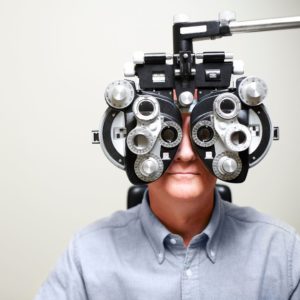
What happens during an eye exam?
During your eye exam, a series of tests will be done to evaluate your vision and check for any eye disease. Eye diseases such as glaucoma develop gradually without causing pain or vision loss. If patients wait until they experience symptoms, they may have significant and irreversible damage.
You will be asked about your medical history during your exam. Be sure to bring a list of medications to share with your doctor as well.
Your doctor will measure your visual acuity to determine if you need glasses or contact lenses to improve your vision. Numbing drops will be placed in your eyes before measuring eye pressure. Sometimes, your doctor will need to dilate your eyes with eyedrops to fully examine the inside of your eyes.
How often should I get an eye exam?
Children under 3 years old will usually have their eyes checked during appointments with their pediatrician. If there are concerns, your child will be referred for a full exam.
School-age children should have their vision checked every one to two years if they have no symptoms of vision problems and no family history of vision problems.
Adults should have their vision checked:
- Every 5-10 years in their 20s and 30s
- Every 2-4 years from ages 40 to 54
- Every 1-3 years from ages 55 to 64
- Every 1-2 years after age 65
Adults should have their eyes checked more often if they wear glasses or contact lenses, have a family history of eye disease or vision loss, have a chronic disease that puts them at great risk of eye disease, or take medications that can affect vision.
Regular eye exams are important to maintaining the health of your eyes and detecting problems early. Schedule your next appointment by calling (508) 836-8733 today.
